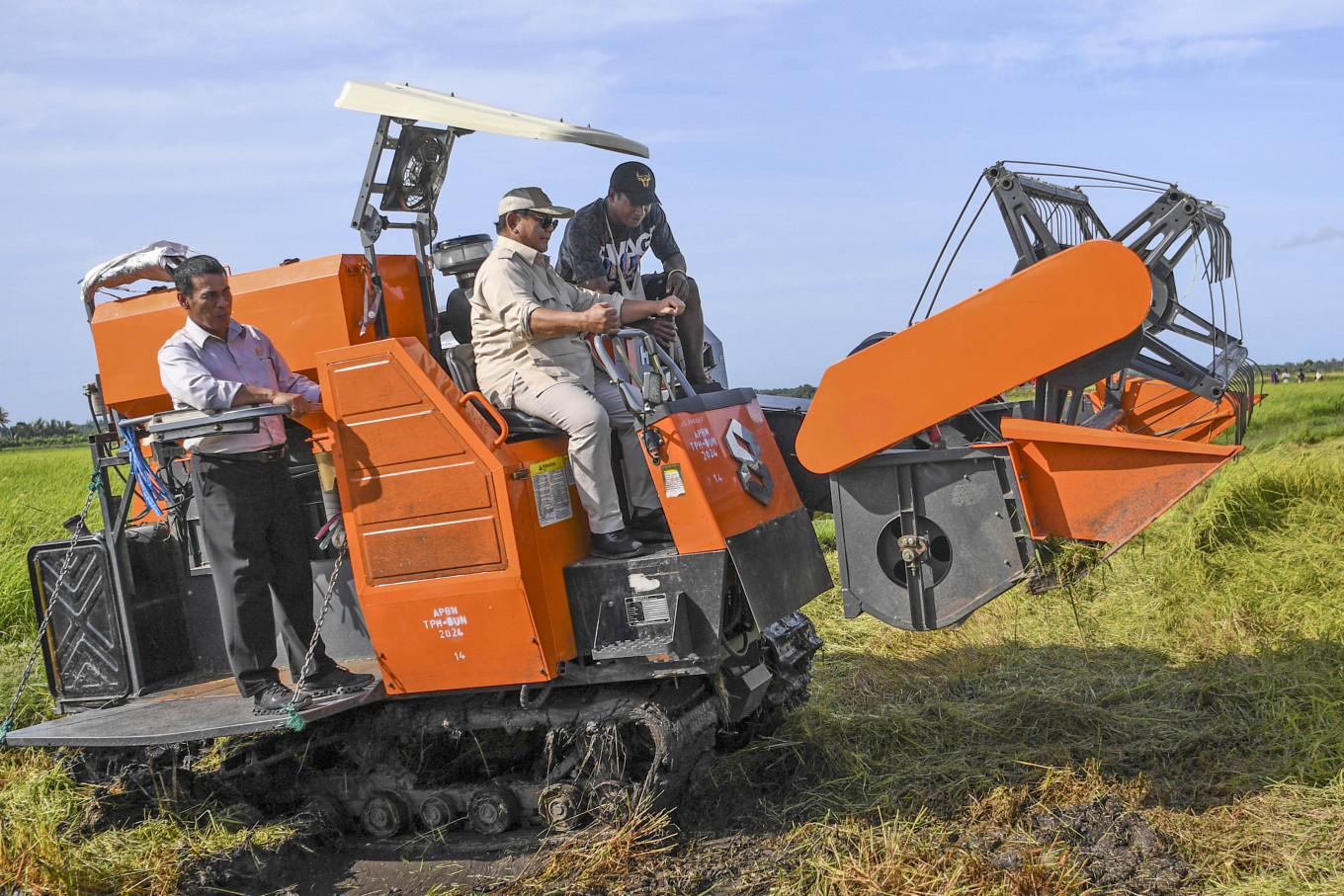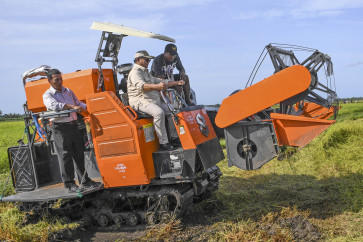Popular Reads
Top Results
Can't find what you're looking for?
View all search resultsPopular Reads
Top Results
Can't find what you're looking for?
View all search resultsUnraveling the complexities of human security in Papua
Eradicating poverty in Papua requires addressing the underlying issues through a comprehensive approach that includes the emic perspective, or an insider's look at how Papuans view themselves, as well as the traditional and contemporary elements of Papuan society.
Change text size
Gift Premium Articles
to Anyone
 President Prabowo Subianto (center), accompanied by Agriculture Minister Amran Sulaiman (left) and a technician, operates a rice harvester on Nov. 3, 2024, during his visit to a farm in Telaga Sari village, Merauke regency, South Papua, as part of the government’s commitment to accelerate its food security program. (Antara Foto/Galih Pradipta)
President Prabowo Subianto (center), accompanied by Agriculture Minister Amran Sulaiman (left) and a technician, operates a rice harvester on Nov. 3, 2024, during his visit to a farm in Telaga Sari village, Merauke regency, South Papua, as part of the government’s commitment to accelerate its food security program. (Antara Foto/Galih Pradipta)
S
hortly after his inauguration on Oct. 20, President Prabowo Subianto pledged to eradicate poverty, including in Papua. Statistically, despite a declining trend, Papua remains the province with the highest poverty rate, according to the latest data from Statistics Indonesia (BPS).
Prabowo views poverty and inequality as the primary challenges in the region. His flagship initiatives, including the food estate and transmigration programs for poverty reduction are, in fact, still controversial. As such, addressing the complexities of poverty in Papua requires a cautious and nuanced approach.
A recent study by the Centre for Strategic and International Studies (CSIS) conducted in Wamena, Jayawijaya regency, Papua Highlands province, looked at the complex issue of poverty from the Papuan perspective. Using the anthropological emic approach is essential to avoid misinterpretations that could lead to ineffective policies.
The study found that surprisingly, Papuans do not view themselves as poor because they can still eat, own land and pigs, engage in traditional activities and leverage social capital.
Land is essential for the Papuan livelihood. This emic perspective should caution the government against the arbitrary use of customary land, as many Papuans face increasing land deprivation. Arbitrary land grabbing will plunge Papuans into poverty in the real sense.
In addition to these approaches, the poverty facing indigenous Papuans should be examined within the context of human security. This approach shifts the focus from military and political concerns to the economic and social well-being of individuals and communities, prioritizing human security over national security.
The key elements of human security include economic security (freedom from poverty), health security, environmental security (protection from environmental harm), personal security (safety from violence and crime), community security (preservation of cultural and ethnic identities) and political security (enjoyment of civil rights and freedom from oppression).


















